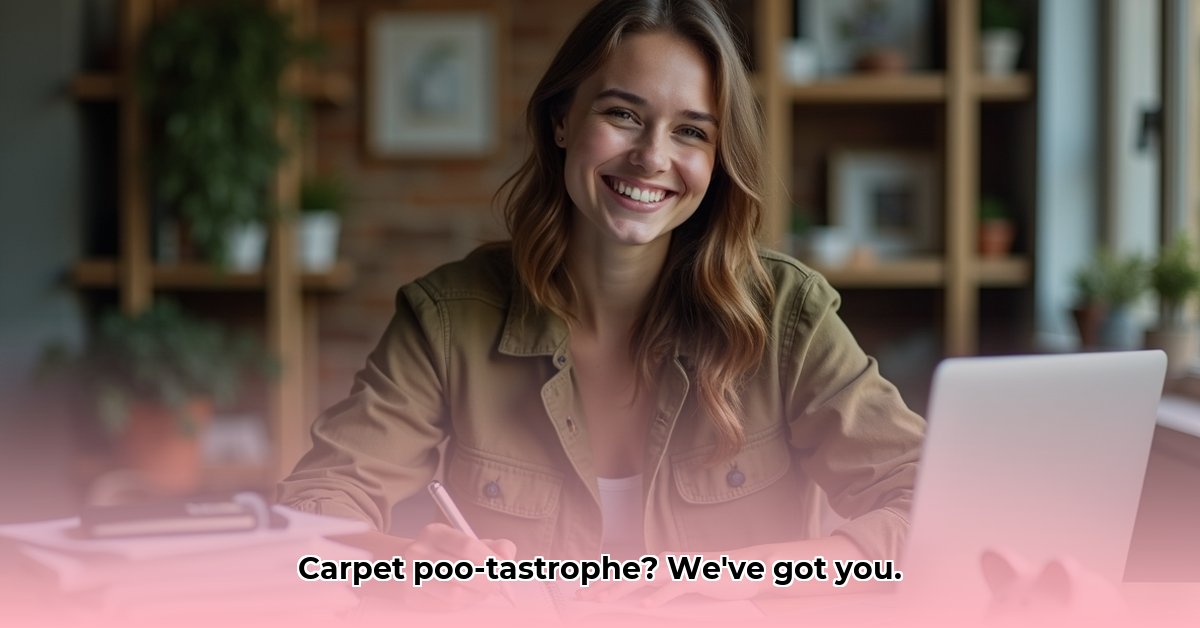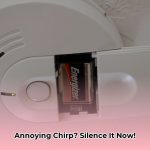Finding poop on your carpet is an unpleasant surprise, but don’t worry! This guide provides clear, step-by-step instructions to effectively clean and deodorize your carpet, whether the culprit is a pet or a person.
Immediate Actions: What to Do First?
Discovering a poop stain can be unsettling, but swift action is key. Here’s how to start:
Step 1: Protect Yourself and Contain the Mess
Before you begin, put on disposable gloves. Then, using paper towels, a scraper, or a spoon, carefully remove as much solid waste as possible. Seal the waste in a plastic bag for disposal. The more you remove now, the easier the cleaning process will be.
Step 2: Blot—Don’t Rub!
Resist the urge to scrub! Rubbing grinds the stain deeper into the fibers. Instead, blot the area with a clean, white cloth, working from the outside in. Blotting lifts the stain out without spreading it.
Choosing the Right Cleaning Solution
Selecting the right cleaning solution is crucial. Here’s a breakdown of effective options:
DIY Cleaning Solutions:
-
Dish Soap & Water: A few drops of mild dish soap mixed with warm water is often sufficient for fresh stains. Blot the stain with the soapy solution.
-
Vinegar & Baking Soda: This dynamic duo is excellent for both stains and odors. Sprinkle baking soda generously on the stain and then spray with a mixture of equal parts water and white vinegar. The fizzing reaction helps lift the stain and neutralize odors. Blot as the mixture fizzes.
-
Hydrogen Peroxide & Ammonia (Use with Extreme Caution!): For stubborn stains only, a carefully measured solution of hydrogen peroxide and ammonia may be used. Always test this mixture in an inconspicuous area first. This solution can discolor some carpets, so research proper ratios from a reliable cleaning source before trying this method.
Commercial Cleaning Products:
-
Enzyme Cleaners: These cleaners are specifically formulated for organic stains like pet messes. They contain enzymes that break down the proteins causing the stain and odor. Follow the product instructions precisely. Note that enzymatic cleaners are often recommended for pet messes, but ongoing research suggests there’s some debate about their effectiveness for human waste.
-
Carpet Cleaning Machines: For deep cleaning and recurring accidents, a carpet cleaning machine can help. These machines are an investment, but the results can be worth the cost.
Choosing the Right Solution for Your Needs:
| Cleaning Solution | Pros | Cons | Best For |
|---|---|---|---|
| Dish Soap & Water | Readily available, gentle, effective on fresh stains | May not work on stubborn or set-in stains | Fresh stains |
| Vinegar & Baking Soda | Natural, deodorizing, effective on fresh to moderate stains | Can sometimes leave a residue, may not be suitable for all carpet types | Fresh to moderately set-in stains, odor removal |
| Hydrogen Peroxide & Ammonia | Effective on stubborn stains | Can discolor some carpets, use with extreme caution | Stubborn stains (test first!) |
| Enzyme Cleaner | Designed for organic stains, especially pet messes | Can be more expensive, effectiveness on human waste is debatable | Pet stains, some organic stains |
| Carpet Cleaning Machine | Powerful deep cleaning, removes embedded stains and odors | Can be expensive, time-consuming | Deep cleaning, frequent accidents |
Cleaning and Drying: Step-by-Step
Step 1: Apply Your Cleaning Solution
Apply your chosen cleaning solution to the stained area, following product instructions carefully.
Step 2: Gently Agitate (Don’t Scrub!)
Using a clean cloth or sponge, gently work the cleaner into the carpet fibers. Blotting is key here—avoid rubbing.
Step 3: Dwell Time
Allow the cleaner to dwell for the recommended time (check the product instructions). This allows the cleaner to effectively break down the stain and odor molecules.
Step 4: Rinse Thoroughly
Rinse the area with clean, cool water, blotting up excess moisture as you go.
Step 5: Dry Completely
Blot the area with dry towels and allow the carpet to air dry completely. A fan, wet/dry vacuum, or dehumidifier can speed up the drying process. Placing a layer of paper towels weighted down with books can also help absorb excess moisture.
Deodorizing: Banishing Lingering Smells
Even after cleaning, an odor might linger. Here’s how to address it:
Step 1: Baking Soda Power
Sprinkle baking soda generously over the dried area. Let it sit for several hours or overnight to absorb odors. Then, vacuum it up.
Step 2: Specialized Odor Neutralizers
If baking soda isn’t enough, consider a pet odor neutralizer or an odor eliminator specifically designed for carpets. These often contain enzymes that break down odor-causing molecules. Always test in an inconspicuous area first.
Troubleshooting
-
Stubborn Stains: For stains that refuse to budge, repeat the cleaning process or consider a commercial carpet stain remover. A paste of baking soda and water can also be effective.
-
Persistent Odors: Repeat the baking soda treatment or try a specialized odor neutralizer. Some research suggests certain essential oils, like lavender or tea tree oil, may neutralize odors, but always test these in an inconspicuous area first.
-
Discoloration: If your cleaning attempts result in discoloration, consult a professional carpet cleaner.
Prevention
Preventing future accidents is the best strategy. House-train pets, clean up accidents promptly, and consider using enzyme cleaners immediately after accidents occur. Regular carpet cleaning and the use of carpet protector sprays can also help prevent stains from setting in.
While these steps are generally effective, individual results may vary depending on the carpet type, the age of the stain, and the nature of the soiling. For particularly challenging stains or valuable carpets, professional cleaning is always recommended. Research into cleaning methods is ongoing, so keep an open mind to new information and techniques as they become available.
- NYT Connections Answer: Hedgehog, Pineapple, Cactus The Spiky Things Explained - April 20, 2025
- How to Clean a Wool Carpet: A Comprehensive Guide - April 20, 2025
- How to Clean a Pleather Couch: A Complete Guide - April 20, 2025










